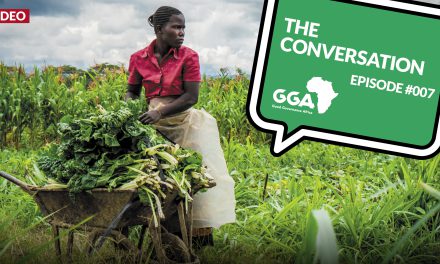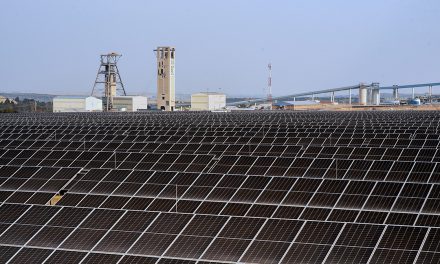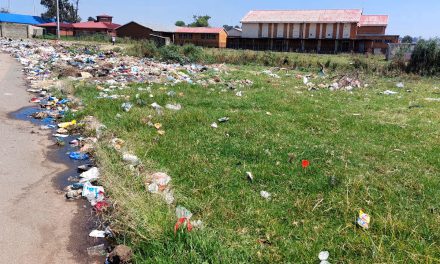This year the African Union (AU) celebrates its 20th anniversary. Despite facing many setbacks and challenges in the past two decades, the institution remains key in addressing the many difficulties facing the continent.
The state of democracy and respect for human rights remain persistent challenges across Africa, while various crises, such as armed conflict, Covid-19 and climate change, accelerate the risk of further political and social instability.
Most Africans on the continent are in favour of elections, with 70% on average supporting democratic governance in the Afrobarometer survey. However, it has become increasingly evident that the incidence of quality elections is in question.
Elections alone do not suffice. As has been observed, citizens in Lesotho, South Africa and Tunisia decreased their support for elections between 23% to 20% over the past decade, indicating a larger problem with electoral institutions and the impact they have on governance.
A decline in citizen trust in elections reveals a bigger picture of the state of governance and democracy on the continent. More than half of Africans believe the level of corruption in their country has increased in the last decade.
This article looks at the continental initiative, Data for Governance Alliance, which seeks to bring together the voices of citizens, civil society organisations and the AU in promoting better governance, development and growth, in line with Agenda 2063.
The alliance aims to bridge the gap between citizens and the institutions which govern them, with the hope of giving Africans the opportunity to buy into the vision of the AU and have civil society play an important role in the implementation of Agenda 2063.
The alliance forms part of the African Governance Platform which promotes dialogue between various stakeholders who are mandated to promote good governance and strengthen democracy on the continent while assisting in sharing AU legal and policy pronouncements.
The project will create platforms for nine African Governance Architecture organs, such as the African Peer Review Mechanism; the Economic, Social and Cultural Council; the Pan-African Parliament and the African Committee of Experts on the Rights and Welfare of the Child, among others.
Within East, West and Southern Africa, at least five civil society organisations from each regional economic zone will participate and engage with each other and with the African Governance Platform organs.
The project’s consortium members include Afrobarometer, the Ghana Center for Democratic Development, the Institute for Justice and Reconciliation in South Africa, Laws Africa and the Institute for Development Studies at the University of Nairobi in Kenya.
Two stakeholder engagements and training sessions have taken place under the Data for Governance Alliance umbrella, the first being in Accra, Ghana, last month, and the second in Cape Town earlier this month. The final convening will take place in Nairobi later this month.
These meetings aim to reinvigorate the relationships between pan-African civil society organisations and representatives of the AU governance architecture to discover avenues of collaboration and capacity building.
Furthermore, the aim is to capacitate both civil society organisations and African Governance Architecture organs to effectively access and use data for informed policymaking and advocacy on issues of governance, democracy and human rights.
Amid the challenges of governance, development and rule of law, the coverage and quality of citizen-centred data is limited to a select few African states. Moreover, access to legal frameworks of AU organs, as well as regional economic communities has, until now, been difficult and inaccessible to citizens and civil society organisations.
The Data for Governance Alliance has sought to solve this problem through the African Legal Information Institute platform, which was presented by Mariya Badeva-Bright at the meeting in Cape Town.
The platform has digitised almost 3 000 law and policy documents of the African Governance Architecture, allowing citizens and civil society organisations to easily read, search and share either on mobile devices or computers.
This aspect of the project hopes to increase awareness of the AU’s governance and law protocols among citizens and help strengthen the implementation of democracy, governance and human rights agendas.
Dr Justice Mavedzenge, the pan-African constitutional lawyer and scholar, looks to solve the challenge of implementation by developing country scorecards “to inform interventions by civil society organisations both in their areas of work and their engagement with the African Governance Architecture entities” across different themes which mirror the AU’s human rights architecture.
This leads us to the key concept driving the alliance project — data-based advocacy. This concept is informed in two ways, the first being citizen-centred data provided by Afrobarometer and their latest survey rounds. The second is advocacy strategy, which Dr Nansata Yakubu, the project’s advocacy trainer, defines as a “dynamic process involving an ever-changing set of actors, ideas, agenda and politics”.
The goal of Yakubu’s advocacy workshop was to enable civil society organisations to access and influence those who make decisions that affect the lives of African citizens. Crucially, she revealed how advocacy is a cumulative process that has various stages and outcomes worth celebrating, no matter how big or small.
The use of citizen-centred data to inform and complement advocacy strategy is important if civil society organisations are to accurately express the views and needs of their country’s citizens.
The meeting in Cape Town concluded with a lively and constructive engagement between the African Peer Review Mechanism; the Economic, Social and Cultural Council; the Pan-African Parliament and the African Committee of Experts on the Rights and Welfare of the Child, among the diverse group of civil society organisations present.
The workshop allowed each civil society organisation to pose questions and find opportunities for collaboration and capacity-building outside of the meeting space.
The AU organs provided important focal points within various state institutions to assist civil society organisations in deepening their communication with governments and finding decision-makers for their advocacy projects.
Ultimately, both the civil society organisations and the AU organs present had the same vision and ambition for the continent.
The Data for Governance Alliance is a bold and necessary initiative if citizens, civil society organisations and the AU are to find better synergy in solving the most critical issues on this continent.
- This article first appeared in Mail & Guardian on 21 October 2022.
Monique Bennett holds a Master’s degree in International Relations from the University of the Witwatersrand. She is currently pursuing her Doctorate in Political Science at Stellenbosch University funded by the Peace Research Institute of Oslo. She enjoys a mixed-methods approach to research across topics such as governance, environmental issues, human security and peacebuilding within the African context. She supports her research team by providing data-driven evidence for their research/op-eds and writes for various South Africa news outlets.







